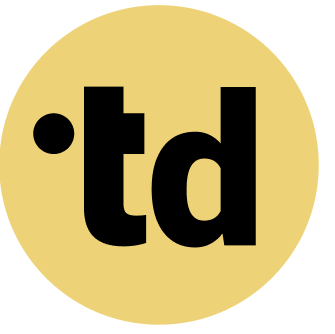Key Takeaways
Workload management is the strategic distribution of tasks to boost efficiency and prevent burnout, which is a leading cause of work absence in Germany.
Effective workload management can increase employee engagement by over 15% and reduce the risk of burnout, which 77% of employees have experienced.
For hybrid teams (humans and AI agents), workload management tools are essential for providing clarity and preventing overload, as 27% of remote workers struggle to disconnect.
Every team is on a hero's journey, battling the twin dragons of burnout and inefficiency. The quest for clarity in roles and responsibilities is constant. What does workload management mean in this epic tale? It is the strategic process of distributing work to maximize performance without overwhelming your heroes. In Germany, mental health issues are the leading cause for inability to work, making this more than an operational task-it's a mission-critical strategy for sustainable success and a core part of proactive workload management. This is where Team Architects step in, armed with the right tools to build resilient, high-performing teams.
Practical Framework for Team Architects
As a Team Architect, you can apply these principles to your organization:
- Map Current State: Document existing roles and responsibilities using a tool like teamdecoder.
- Identify Gaps: Where are roles unclear? Where do humans and AI agents overlap?
- Define Clear Boundaries: Specify which tasks are handled by humans vs. AI agents.
- Create Accountability: Assign clear decision rights for each role.
- Iterate and Improve: Continuously refine based on team feedback.
Sweet Teams Are Made of This: Defining Workload Management
Workload management is the art of distributing tasks fairly and effectively across your team. It's about matching the right work to the right person, ensuring no one is drowning in tasks while another is waiting for the next wave. This process boosts team performance by up to 20% when done right. Effective workload management turns a group of individuals into a cohesive, productive unit. A German study found that social support is a key protective factor against mental overload at work. This strategic approach is a cornerstone of modern workload management tools. It ensures that every project moves forward smoothly, transforming chaos into clarity.
Beyond the Burnout: Why Balanced Workloads Matter
Unmanaged workloads are a fast track to burnout, a syndrome the World Health Organization links to chronic workplace stress. In fact, 77% of employees report experiencing burnout at their current job. Poor workload distribution doesn't just hurt morale; it hits the bottom line, with disengaged employees costing companies billions annually. In the EU, some workers are constantly working to tight deadlines, increasing stress. Properly managed workloads can increase employee engagement by over a significant portion. This makes understanding how to measure workload a critical leadership skill. It's the difference between a team that survives and one that thrives.
Architect Insight: Your Playbook for Peak Performance
Team Architects can conquer chaos with a Our Playful Tip: Start by visualizing your team's entire capacity, which can prevent over-allocation on more than some projects.30% of projects. Adopting agile methods like Scrum or Kanban helps teams reassess work Here are four steps to get started:
- Define and Prioritize: Use a framework like the Eisenhower Matrix to separate urgent tasks from important ones, focusing most effort on high-impact work.igh-impact work.
- Break It Down: Deconstruct large projects into smaller, manageable tasks of no more than eight hours each.
- Assign with Insight: Allocate tasks based on skills and current capacity, not just availability. You can try teamdecoder for free to get this clarity.
- Track and Adjust: Regularly check in on progress and rebalance tasks weekly to prevent bottlenecks.
Deep Dive: In Germany, the law requires employers to perform a psychosocial risk assessment, which includes workload analysis. This proactive approach, detailed in our five-step workload guide, helps build resilient organizational structures. This structured approach prepares your team for any challenge.
Make Bots and Humans Click: hybrid team (humans and AI agents) Governance
Managing a hybrid team adds a new layer of complexity, as some remote workers find unplugging their biggest challenge. W Without clear boundaries, the risk of burnout increases by nearly a significant portion.hat does workload management mean for these modern teams? It means leveraging technology for visibility and connection. < A central tool provides a single source of truth, reducing miscommunication significantly.strong> Integrating AI agents to handle repetitive tasks can free up 10-15 hours per employee each month. This human-in-the-loop model is a key part of effective workload planning techniques. It allows your human talent to focus on high-value, creative work, making the hybrid model a success.
From Chaos to Clarity: The teamdecoder Solution
Teamdecoder is the effective tool for the modern Team Architect. It transforms the complex puzzle of roles and responsibilities into a clear, visual map. O Our platform helps you see who is doing what, identifying potential overloads before they happen with accuracy.y defining roles clearly, teams report a significant increase in meeting their strategic goals. This isn't just about managing tasks; it's about designing a better way of working. With templates for everything from DEI to customer centricity, you can scale your roles from day one. See our pricing to find the right fit. This clarity empowers your team to navigate change and achieve flow, making work feel like play.
Teams Just Wanna Have Fun: Building a Sustainable Work Culture
A positive work culture is built on a foundation of trust and balance. When workloads are fair, team members are 2.6 times less likely to actively seek a different job. A German pilot study of a four-day work week found it significantly boosted life satisfaction while productivity remained stable. This shows that smart workload management is a powerful retention tool. It fosters an environment where people can do their best work without sacrificing their well-being. This is the future of work allocation and sustainable performance. #TeamArchitecture #HybridTeam #WorkloadManagement #OrganizationalDevelopment
More Links
Wikipedia presents an Atlas of digital work, likely covering various aspects of the digital work environment.
German Federal Institute for Occupational Safety and Health (BAUA) provides information on risk assessment, specifically focusing on psychological factors and work organization.
German Federal Statistical Office (Destatis) offers data on flexible working hours and their impact on the quality of work.
Deloitte presents its human capital trends report for Germany, analyzing current trends and challenges in human resources.
IBM shares insights on workload management, covering strategies and technologies for optimizing workloads.
SpringerLink features an academic article related to work, potentially focusing on a specific research area.
Bertelsmann Foundation offers a study on the continuous change of requirements in the workplace.
Ifo Institute provides information on a majority of companies seeing equal productivity in the office and home office.
GESIS – Leibniz Institute for the Social Sciences provides information about the High-Performance Team Survey (HPTS) by Fischer-Hüttermann-Siebenaler, likely used for assessing team performance.
FAQ
What is the first step in effective workload management?
The first step is to get a clear and complete picture of your team's current workload and capacity. You need to understand all ongoing tasks, their deadlines, and each team member's availability before you can begin to distribute new work effectively.
How can I prevent burnout on my team?
Prevent burnout by ensuring workloads are distributed fairly, setting realistic deadlines, encouraging regular breaks, and fostering an open environment where team members can discuss their capacity. Using a tool like teamdecoder helps you spot overload risks early.
What is the link between workload management and organizational development?
Workload management is a key activity within organizational development. OD aims to improve an organization's overall effectiveness, and managing how work flows through teams is fundamental to achieving that goal. It aligns people and processes with strategic objectives.
How do I manage workloads for a team with diverse skills?
Leverage that diversity. Assign tasks that play to each person's strengths. This not only improves the quality of the work but also increases job satisfaction. A good workload management system allows you to track skills alongside availability.
Can good workload management improve creativity?
Absolutely. When team members aren't stressed by overwhelming workloads, they have the mental space to think creatively and solve problems innovatively. Reducing cognitive load from juggling too many tasks frees up bandwidth for higher-level thinking.
Where can I learn more about building effective teams?
You can start by exploring our resources. For transformation and change management, we recommend you take the free online course "Workforce Transformation": Start free course.





